Respiratory syncytial virus (RSV) is a virus that infects the lungs and respiratory tract. It is very common and most children have had RSV before they turn two. It usually causes mild symptoms that are very similar to cold symptoms. Though it mostly affects children, adults can also be infected. RSV is very contagious and can cause some severe symptoms. If you are in the high risk group and you get RSV it can cause life-threatening problems. RSV is passed through the air or by touch. The virus can live for days on hard surfaces.Â
Â
Symptoms
Symptoms are usually very mild. They usually last about one to two weeks. Mild symptoms can include congestion, dry cough, low-grade fever, sore throats, sneezing, headache.Â
RSV can cause pneumonia or bronchiolitis. If you have either of these your symptoms can be fever, severe cough, wheezing, rapid breathing, difficulty breathing, or cyanosis, blue skin coloring due to lack of oxygen.Â
Severe symptoms can include short, shallow or rapid breathing, struggling breathing, coughing, poor feeding, lethargy, irritability, or dehydration.Â
Usually symptoms are mild enough that it is often thought to be a cold instead of RSV. Only in cases where people are at high risk is when symptoms can become more severe. Some higher risk people are babies that are twelve months or younger, premature infants, older adults, people with heart or lung diseases, or who have weak immune systems. Â
Diagnosis
Diagnosing usually will start with a physical exam by your pediatrician or doctor. If needed your doctor may want to do a blood or urine test. These tests will look for signs of dehydration or bacterial infection. Chest x-rays may be done to look for signs of pneumonia. Nose or throat swabs can be done as well. Pulse oximetry can be done to measure the amount of oxygen in the blood. Â
Complications
RSV usually is mild but can cause some severe complications. It can cause you to become hospitalized. This happens when symptoms become too severe to be handled at home. RSV can also cause pneumonia or bronchiolitis. It can also lead to a middle ear infection. There are some studies that show links of having severe RSV in children that can then lead to them developing asthma later on in their life.Â
Once you have RSV you can get RSV again. Having it once does set you up for repeated infections.
Treatment Â
There is no specific treatment. Mostly it is to keep your child or yourself comfortable at home. Symptoms usually only last one to two weeks and usually symptoms run their course on their own.Â
Your doctor may suggest some over the counter medications to help alleviate some symptoms. You can try pain and fever relief with over the counter medications such as Tylenol.Â
Nasal saline drops can also be helpful. If your younger child is having lots of nasal congestion and is unable to blow their nose, you can use a nose bulb syringe to suck out extra congestion. To help ease breathing you can use a humidifier.Â
Make sure to stay hydrated. Keeping the amount of fluids up can help make sure you don’t become dehydrated.Â
Your doctor may give you antibiotics if there are signs and symptoms of pneumonia.Â
If hospitalized, treatment within the hospital can include oxygen being administered, breathing machines to help with breathing in severe cases, and IV fluids to help combat dehydration. Â
Prevention
There is no vaccine to help complete prevention of getting RSV. There are some things you can do though to help.Â
- The main one is to stay away from people who are infected. RSV is extremely contagious so staying away from people with fevers, or cold like symptoms can stop it from spreading to you.Â
- Wash your hands frequently. Cover your mouth, and nose when you sneeze or cough.Â
- Clean hard surfaces with disinfectants. The virus can stay on hard surfaces such as tables, chairs, cribs, or even toys. Washing these places regularly can help kill the virus before you are infected.Â
- Avoid sharing drinks.Â
- Don’t smoke or allow others to smoke in front of your children. Â
Conclusion
Although RSV is very common and most children have had it at least once by their second birthday it can cause some serious complications. Most people recover completely from RSV since symptoms go away after one to two weeks on their own. There are times of the year when RSV is more rampant. Be aware of these times, usually from spring to fall, depending on the climate, you can make sure you keep washing your hands often and cleaning surfaces to help maintain a healthy clean environment to combat this virus. Â
COVID isn't the only virus out there to be aware of. Most children will experience a case of RSV before their 2nd birthday! #HealthStatus
To combat RSV or any virus wash your hands frequently and keep hard surfaces disinfected.
Sources:
https://www.cdc.gov/rsv/about/symptoms.html
https://www.mayoclinic.org/diseases-conditions/respiratory-syncytial-virus/symptoms-causes/syc-20353098
https://www.webmd.com/lung/rsv-in-babies
https://kidshealth.org/en/parents/rsv.html
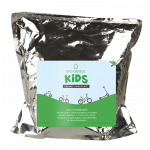


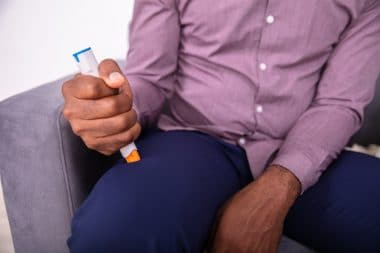
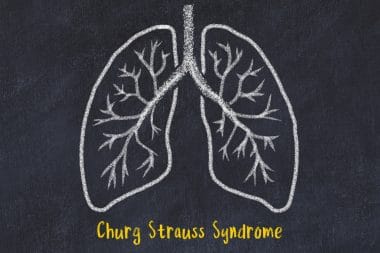
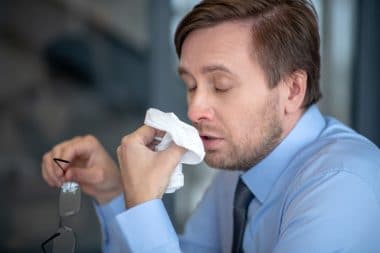
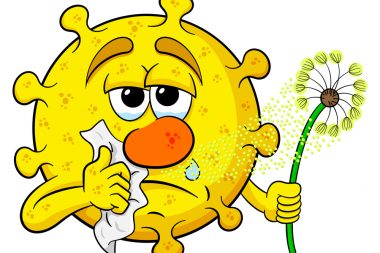


Reply